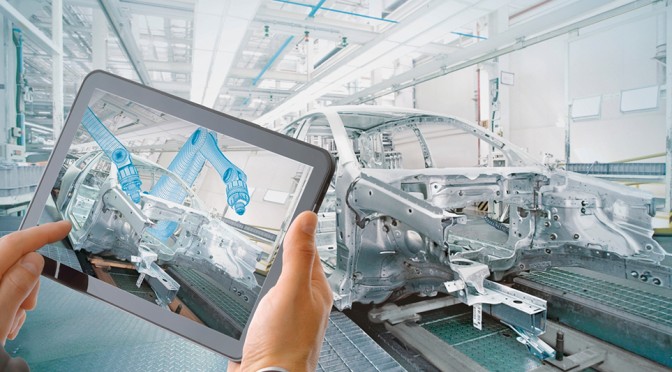Why manufacturing industry needs digital transformation?

In the era of technological evolution and advancement, no business or manufacturer can solely take all orders by phone and then keep updating the inventory manually, or use a printed map to find their destination. Digital transformation certainly plays a significant role in the regular operations of modernized companies. The major cause for this transformation is the changing expectations of consumers, who yearn for faster and more efficient products, which are manufactured in much smarter way.
How digital transformation affecting manufacturing industry?
Other than facing the changing consumer expectations, digital transformation is pushing the manufacturing industry towards a ‘service economy’, giving rise to a new business model, which has consumer at the center. Manufacturing is not just the largest industry from Internet of things perspective, it is rather the focus now. There are various reasons why manufacturing industry is so functional in Industrial IoT, which are directly linked with the challenges faced by the industry, which eventually get converted into opportunities for digital transformation.
Three large challenges in the manufacturing industry
- Geo-political and macro-economic conditions
When you analyze the current industrial trends, a challenge that has not been very significant in past decades but has become critical now is: geo-political and macro-economic conditions. The manufacturing industry is facing exceptionally unpredictable phase with regards to consumer expenditure habits and vague macro-economic setting. During such a situation, the drive to automate and save money on manufacturing costs, while putting more emphasis on raising efficiencies with faster time-to-market, is the prime demand from the customer.
- Customers: More demanding and cost-conscious
Once organizations achieve efficiencies through more effective processes, new opportunities emerge giving way to innovation, the customer demand for. The customers now want fast-paced, information-rich, more efficient processes while seeking low-cost products. In a highly complex yet connected ecosystem, which poses as a challenge as well as opportunity for manufacturing companies, the Industrial Internet of Things plays a significant role.
- Competition
The third most crucial element, which is also a predictable outcome of the first two with digital transformation at the center, is competition. As per an IDC study, by 2020, manufacturers will be able to seize 20% more aftermarket revenue by effectively using product and service quality measures to improve customer experiences.
Keys for successful digital transformation
- ERP: ERP (Enterprise Resource Planning) is an essential element in the digital transformation process devised specifically for the manufacturing space. ERP helps organizations accelerate the sales process. This is because, the faster a salesperson gets products organized, finalizes customer’s quotes, and gets the contracts signed, the better it is for organization’s sales. Speed is what matters when you have to close a deal and that’s what makes the ERP so desirable for organizations.
- Service excellence: Service Excellence is another aspect of the sales strategy that enables SaaS companies to achieve digital transformation in the manufacturing space. This requires organization to put customers first and helping them in the most efficient way.
- Innovation: Digital innovation can help any industry to achieve desired success, however, in manufacturing, connected products help the firms to collect data that can be used in multiple ways to introduce innovative products and get insights to customer behavior. It also helps the firm make informed decisions based on the captured data.
The benefits of a digital transformation
The digital transformation will enable SME manufacturers to redesign the manufacturing industry completely. An organization can become more productive and secure more profitable business deals if they efficiently use the real-time data. Transform your business digitally for better product quality and higher level of trust from clients.
